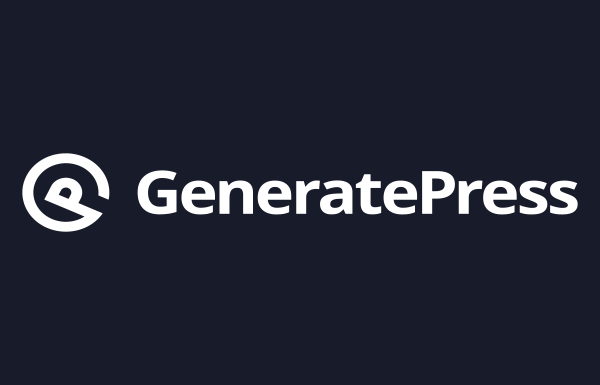Full Site Editing (FSE) is the latest and most anticipated update in Project Gutenberg. It brings together the block editor, block patterns, and block-based themes to provide a unified editing experience. And now with WordPress 6.2, Full Site Editing is no longer a beta feature. The promise made by FSE is that users of a block theme will now be able to edit their entire site using the block editor. So this all sounds very exciting, but what exactly does it mean, and more importantly what should GeneratePress users be aware of?
NOTICE: If you’re using GeneratePress and have updated to WordPress 6.2 then you will see no differences to the WP Dashboard, there will be no Editor menu, and there are no changes to the theme Customizer. You will however notice some of the core updates made to the Block Editor.
Full Site Editing and what does it actually mean?
WordPress websites come in many different designs with many different functions. From the humble blog to a full-blown members site with e-commerce functionality. WordPress and its vast community of developers have provided the tools in the shape of core development, themes, and plugins that allow for such technical diversity. And it is for this very reason that we all must calm our expectations of what Full Site Editing actually means to you and your website. With the multitude of plugins and custom requirements that the various sites require you should not expect “full site” to mean the full site, just yet.
Something for the TwentySomething Theme user
Each year WordPress releases a new theme, and those themes have traditionally come with very few customization options built in. Customizing a core theme has always required plugins or custom development.
If you’re a user of these themes and have embraced the block editor then you will see the most significant improvement to your site editing experience with FSE today. With the (site) Editor those users can now edit templates & template parts and apply styles without touching a line of code.
And if you want to test out FSE then I recommend you boot up a development site, install WP 6.2 and TwentyTwentyThree, and have a play with the new features.
Not for the GeneratePress Theme or any traditional theme user
GeneratePress, like the vast majority of WP themes, is now referred to as a “traditional theme”. Traditional themes are built on PHP Templates whereas a Block Theme uses static HTML templates. The latter can be edited using the block editor whereas a PHP template cannot. And that is why a theme like GeneratePress cannot currently access all of the FSE options. In particular the new Site Editor.
Whether WP will extend FSE support to a traditional theme, or provide a core function for bridging the gap between the traditional PHP templates and block templates is currently unclear.
Even if we could enable FSE, would we?
Even if we could enable FSE in GeneratePress today, would we? The simple answer is no, not today. There are many reasons for this, and just to state a few:
First off we do not feel that FSE is ready for production sites, it is still very much under development and we would certainly advise users against using it in any serious site builds.
Secondly, we have thousands of users and their websites to consider. Maintaining backward compatibility and integrating FSE features with traditional themes has been somewhat left as an afterthought, and one that has yet to be truly ( hmmm ) thought about.
Thirdly we don’t yet see how it would benefit GeneratePress users today. Our suite of tools already provides its own FSE capabilities using the core Block Editor. Read on for more information.
GeneratePress, GP Elements, and GenerateBlocks Hybrid FSE
Everything that you can do with WP 6.2 FSE, and a lot more, is possible with GeneratePress, GeneratePress Premium, and GenerateBlocks. Our pioneering Elements module has allowed users to customize all parts of their site using the Block editor for almost 2 years now. With it, users can build:
- templates for single posts or archive pages.
- custom 404, No Results, and Search Results pages
- template parts for post meta, headers, heroes, footers, and sidebars.
- custom content using custom fields.
All of which can be dynamically displayed using conditional display rules. And with GenerateBlocks’ advanced block styling controls, making custom designs is not only a breeze but fun too.
Thinking ahead
Creating new things is always exciting, and the introduction of the Block Editor has definitely provided us with lots of new cool ways to create exciting things. Just look at what we have done with GenerateBlocks and the GeneratePress Premium Block Element.
But as much as everyone likes new things, introducing them should not involve breaking what we have done in the past. Or at the very least we should try to minimize those breakages. Remaining relevant whilst keeping stability and maintaining backward compatibility is a hard balance to achieve. But it has always been one of our highest priorities, and it is what our users expect of us.
And it is with that reasoning that we will continue to embrace new improvements in the Gutenberg editor; when they are stable, when they are backward compatible, and when we see it as a benefit to our users.
